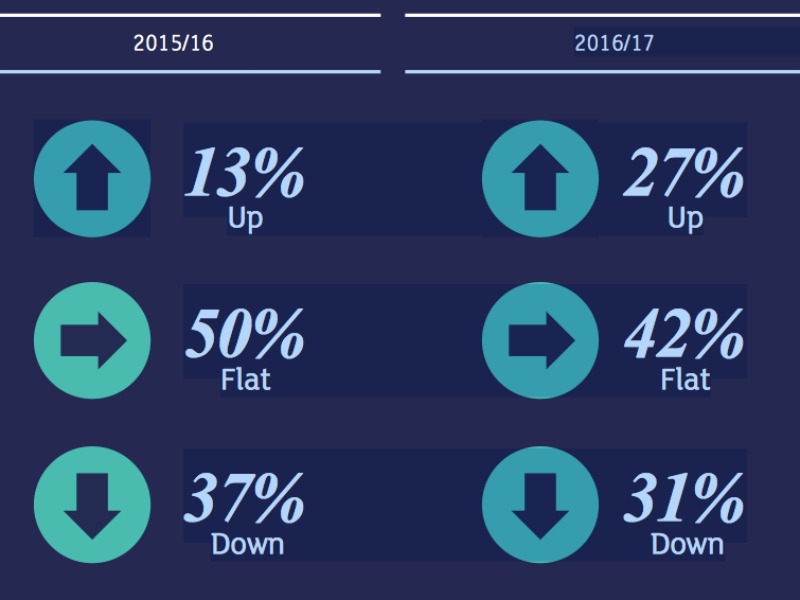Jade Eckardt 29 Jun 2017 // 7:09AM GMT

LONDON — 27% of FTSE 100 corporate communications/affairs directors have reported an increase in their budgets, according to an annual survey conducted by Watson Helsby, up from just 13% last year.
However, the latest edition of the study revealed that most budgets remained flat (42%), while several who reported a budget increase said it was only marginal. Meanwhile, others reported a significant decrease (31%) of up to 20% in some cases. These numbers are nevertheless more promising than last year's report, when 50% reported flat budgets, and 37% reported a decrease.
The survey found that remuneration packages vary significantly between corporate communications/affairs directors working for a FTSE 20 company and those working for a company at the bottom end of the FTSE 100 index. Base salaries in the FTSE 20 range from £275k to over £500k with some correlations between executive committee membership and salary. In the FTSE 21-50 range, salaries begin to drop, but show an average ranging from £251k to £300k. Then in the bottom half of the FTSE 100, salaries spike in the £201k to £250k range.
The report found that 81% of FTSE 100s employ a group corporate communications/affairs director. In contrast, 19% of them do not, most of which are low profile B2B companies where communications and reputation management is not a priority, with communications typically absorbed into investor relations. 76% of all corporate affairs directors in the study report to the CEO.
Execs acting as corporate communications/affairs directors come from diverse backgrounds. Currently, 59% reported a background in journalism, down from 70% in 2016. This year, the second largest group (18%) has a background in IR/investment banking. The remainder (17%) come from marketing, legal and general management.
For the first time the 2017 survey found that the top communications role has a higher rate of female representation (51%) than male (49%).
Another first for the survey was the finding that over 50% of group corporate communications/affairs directors are formal members of the executive committee. Currently, 51% are now formal members of Exco, up from 47% in 2016 and 43% in 2014.


































.jpg)
















